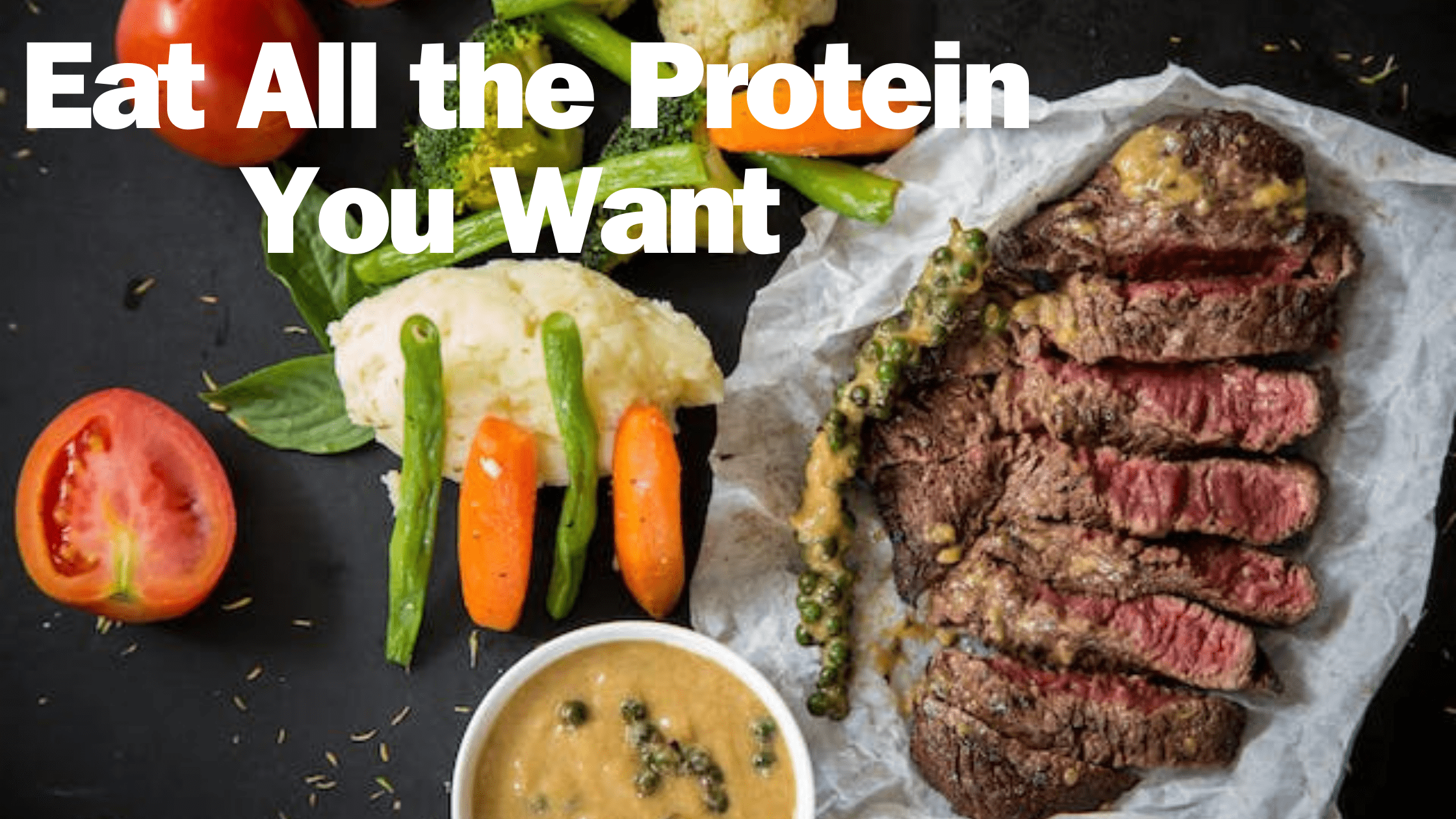An overview of the significance of protein in the diet
Protein is one of the three macronutrients commonly consumed, alongside carbohydrates and fats, that plays an essential role in maintaining and growing tissues as well as repairing cells and creating new ones. Here is an overview of its importance in our diets.
Protein intake is vital in building and maintaining muscles. Consuming more protein may also aid weight loss and support metabolic health overall.
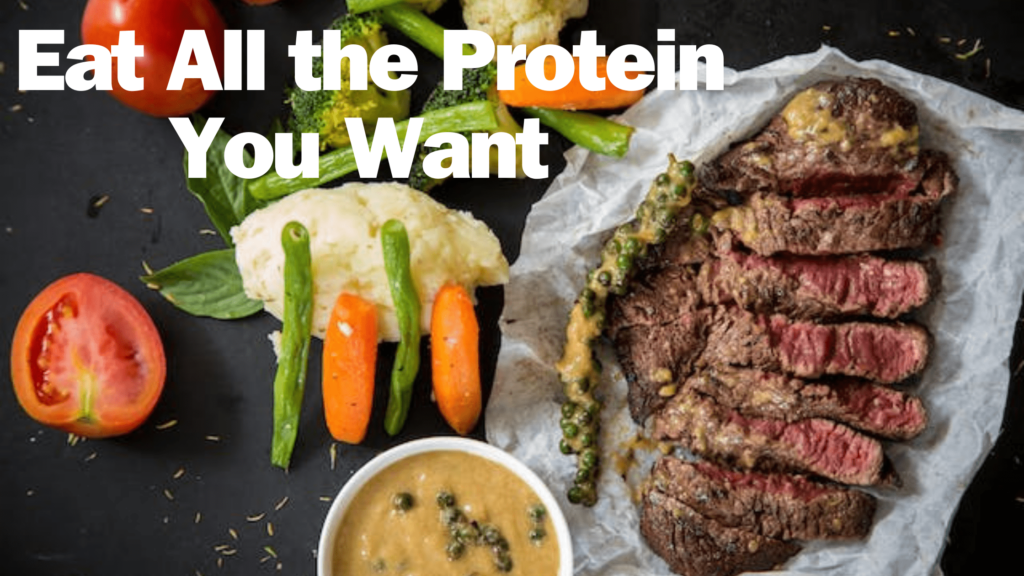
Protein is made up of amino acids linked together in chains. For adults, the current recommendation is that at least 0.8 grams per kilogram of body weight be consumed each day; this figure may change based on age, sex, and weight as well as levels of physical activity.
Protein is an indispensable nutrient essential to human health and its consumption is imperative for good wellbeing and long-term wellbeing. Achieve this through adequate consumption is key to keeping oneself fit and well.
Check this out also Beyond Today: Igniting a Secure Future with Life Insurance by Appxo.in(updated,2023)
Table of Contents
The commonly held belief regarding protein and weight gain.
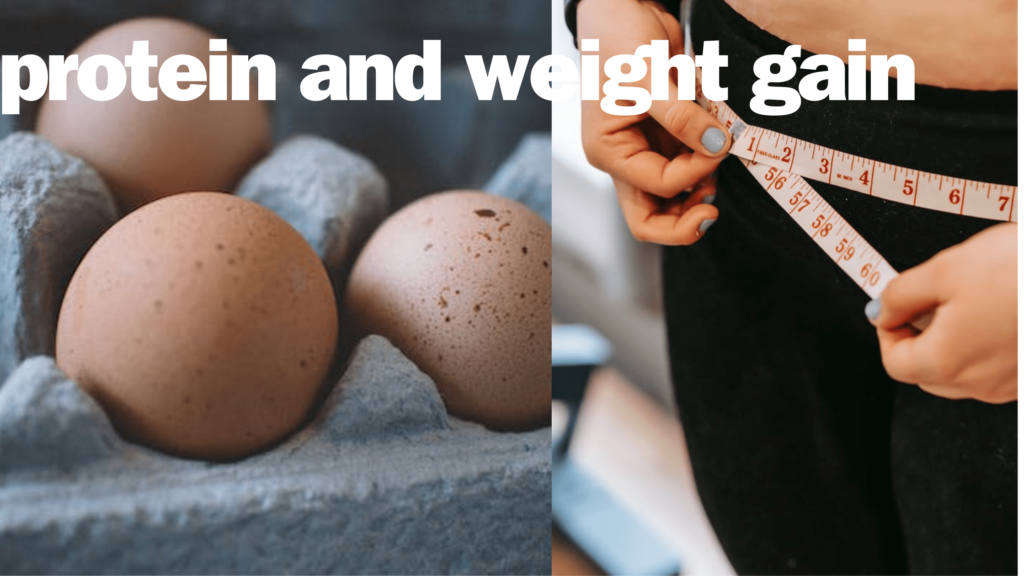
A common misconception surrounds the relationship between protein consumption and weight gain. Eating too much protein contributes to weight increase. Although often promoted as having weight-loss advantages, excessive protein consumption may contribute to muscle development which leads to weight gain over time. Not always though.
Remembering to consume adequate protein could lead to weight gain. Fat-rich proteins should be consumed with caution as this could increase calorie consumption significantly. As an adult, you should aim to consume at least 0.8 grams per kilogram of weight every day; but, for best results.
Overall, protein is an essential nutrient essential to human health and well-being and should be consumed in moderation to remain in good condition. Consuming too much or solely relying on foods high in protein as an effective means of nutrition won’t lead to better outcomes.
Protein’s role is in building muscle and repair
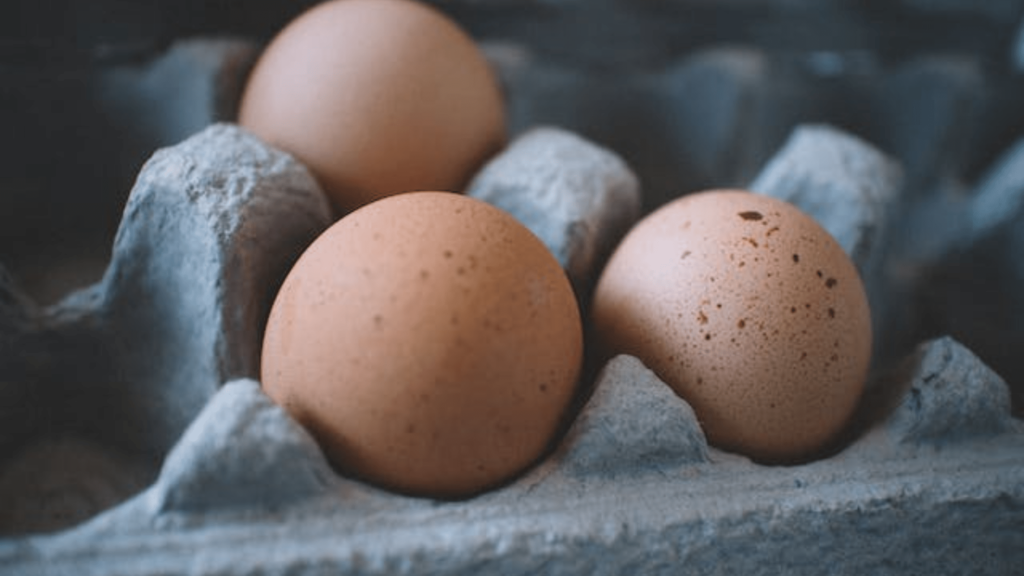
Protein plays an essential role in building and repairing muscles. While exercising, your muscles experience injury; protein helps repair damaged muscle fibers with its amino acid components while eating enough of this macronutrient will promote both muscle growth and repair.
Protein synthesizing is the process by which our bodies create new muscle tissue. For this to occur, amino acids are necessary, so consuming protein after training provides your body with all of the raw materials it needs to repair any damaged muscles and promote the growth of new ones. Studies have demonstrated that taking 20-40 grams post-workout will be sufficient to enhance the growth of muscle tissue.
Attaining proper levels of protein intake is vital to weight management, particularly if the protein contains excessive amounts of fats as this could increase caloric intake and lead to weight gain. Adults should aim for at least 0.8 grams per kg of body mass daily – although the exact amount may differ depending on various factors including gender, age weight, and level of activity.
Protein is essential to building and repairing muscle. Consuming adequate amounts after exercise can help repair muscle damage while stimulating growth. Therefore, you must consume an appropriate amount according to your personal needs and objectives.
Different protein sources both plant and animal-based
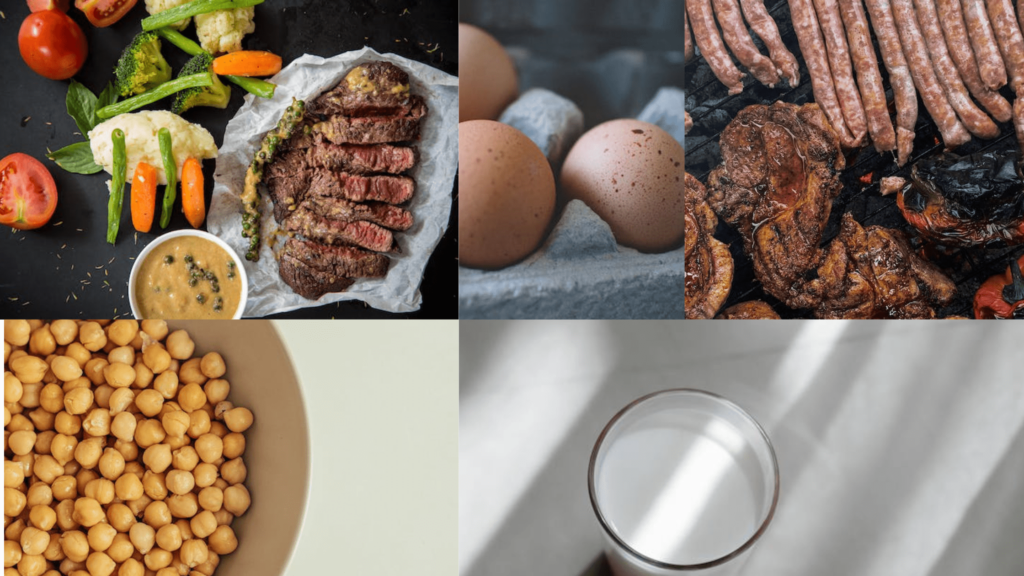
There are two primary categories of proteins: plant-based and animal-based. Protein from animal sources includes eggs, fish, meat, milk cheese, and yogurt – foods that typically provide more protein per bite than plant-based counterparts.
Plant-based proteins come from plants such as lentils, beans, and nuts as well as seeds and whole grains. While plant-based food items typically contain lower protein levels than animal products, they’re still an excellent way to get some essential nutrition in your daily diet.
At times, plant-based proteins are insufficient, lacking essential amino acids for human consumption. To meet your body’s needs more adequately, mixing plant proteins is easy – for instance, peanut butter sandwiches provide a complete protein source!
Animal-derived protein sources typically boast higher protein concentrations than plant-based sources; plant-derived proteins often have less protein overall compared to animal sources but may still serve as excellent food sources to meet your body’s requirements. Protein can help aid weight loss as a powerful aid.
Proteins are a great aid to weight loss

Protein is an integral element in weight loss. Eating enough protein may help regulate hormones, improve metabolism, decrease calories consumed, and curb appetite while curbing cravings.
Protein is the cornerstone of weight loss and an appealing figure. Consuming more protein increases metabolism decreases appetite, and has various hormone-regulating effects which regulate weight. Consuming it will help you shed excess pounds as it operates through various mechanisms.
Protein can reduce levels of the hunger hormone ghrelin while increasing GLP-1 – an appetite-reducing hormone – the peptide YY and cholecystokinin hormones; all of which act to decrease caloric consumption. Consuming and metabolizing protein helps you shed extra calories throughout the day – even during sleep! Incorporating an increase in protein into one’s diet has proven that an individual will burn 80-100 extra calories daily!
Adults are advised to consume at least 0.8 grams of protein for every kilogram of body weight daily, although the exact amount depends on factors like gender, age, sex, and level of activity.
Consuming sufficient protein will help regulate hormones, increase metabolism, reduce calories and appetite while curbing cravings and cravings. Protein is one of the key nutritional components to weight loss and creating a healthier, more attractive physique; making sure that you consume adequate quantities based on your requirements and goals is of vital importance.
The concept of thermogenesis and its correlation with protein consumption are closely intertwined.
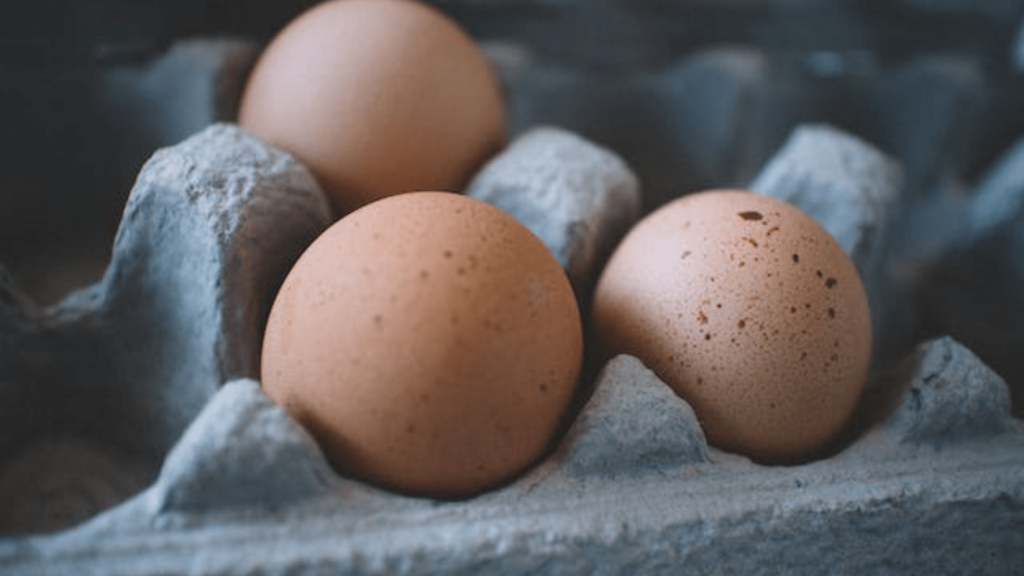
concept of thermogenesis and its correlation with protein consumption
Thermogenesis, or heat production by the body, can be measured through diet-induced thermogenesis (DIT). DIT measures energy expenditure following food consumption. Protein has the greatest thermogenic effect of all macronutrients; digesting it requires significantly more energy than with fats or carbohydrates.
Research has shown that eating a diet rich in protein will increase thermogenic output and increase weight loss chances. Protein consumption also can assist with controlling hormones, improving metabolism, cutting calories and appetite as well as curbing cravings and cravings.
Adults should strive to consume at least 0.8 grams of protein for every kilogram they weigh each day, although the exact amount required can vary based on factors like age, sex weight, and level of physical activity.
Protein provides the greatest thermogenic effect of any macronutrient and can increase its thermogenic output. Consuming enough protein may help control hormones, improve metabolism, cut calories and appetite as well as reduce cravings; so an appropriate amount of protein must be consumed for your personal goals and needs.
Determining the appropriate amount of protein you need for your body.

appropriate amount of protein you need for your body
Establishing the appropriate amount of protein you require for your body can be tricky. Individual needs depend on factors like age, gender, weight, and level of physical activity. Adults aged 19 or over have a recommended daily allowance (RDA) of 10-35% for adults over 19 and this ideal daily intake ranges between 56 grams for men and 46 grams for women per day – although a weight-based RDA of 0.8 grams per kilogram of body weight should also be taken into consideration.
An easy way to estimate your daily protein needs is to convert a percentage range into an exact range of grams; one protein gram contains four calories so divide your range number of calories by four and find out an estimated amount of protein grams needed per day.
Noting the requirements of older individuals (people over 65) requires careful consideration since their protein needs could differ significantly from adults of middle age (1.0-1.2 grams per kilogram of body mass daily). Conversely, individuals living with kidney or liver conditions should reduce their daily protein consumption (0.6-0.8 grams for every kilogram of body mass daily).
How much protein a person requires varies based on many factors, including age and gender, sexual orientation, weight, and level of physical activity. Adults over 19 should consume 10-15 percent of their calories as protein daily – an easy way to estimate this figure would be converting this percentage range to grams of protein daily – this should give an approximate idea. Individuals must consume sufficient quantities according to their needs and goals.
Benefits of Eating More Protein Protein can bring many advantages, from increasing muscle growth and decreasing appetite to improving metabolism and controlling hormones and cravings as well as cutting calories. A diet high in protein can offer many advantages; its inclusion can foster both muscular growth and reduce appetite while improving metabolic processes. A proper intake can be used to manage hormones more effectively as well.
Benefits of a diet high in protein

benefits of high protein diet
Proteins are an integral component of weight loss and body rejuvenation. Consuming more proteins will help you shed unwanted weight and belly fat more easily than ever before. Protein consumption helps lower levels of the hunger hormone Ghrelin while simultaneously increasing GLP-1 (a hormone that reduces appetite), Peptide YY, and Cholecystokinin; all three help lower caloric consumption automatically while digestion of proteins also burns calories throughout the day and night – with an optimal intake leading to an estimated daily caloric burn of 80-100+ calories daily!
Protein is essential in building and repairing muscles, both during training sessions and post-exercise. Muscle damage occurs with physical exertion; protein helps repair those that have been injured through protein amino acid metabolism. Eating enough protein is essential in rebuilding and growing new muscles.
Adults should consume at least 0.8 grams of protein for every kilogram they weigh each day; however, this varies based on factors like gender, age weight, and level of activity.
At its core, a diet rich in proteins can offer many advantages to increase muscle mass, reduce appetite, and speed up metabolism. Consuming enough protein helps control certain hormones, curb cravings, and cut calories; additionally, protein helps build and repair muscles so we must consume an appropriate amount according to our needs and goals. A successful combination of exercise and protein eating should produce the desired results.
Importance of protein intake before and post-exercise.
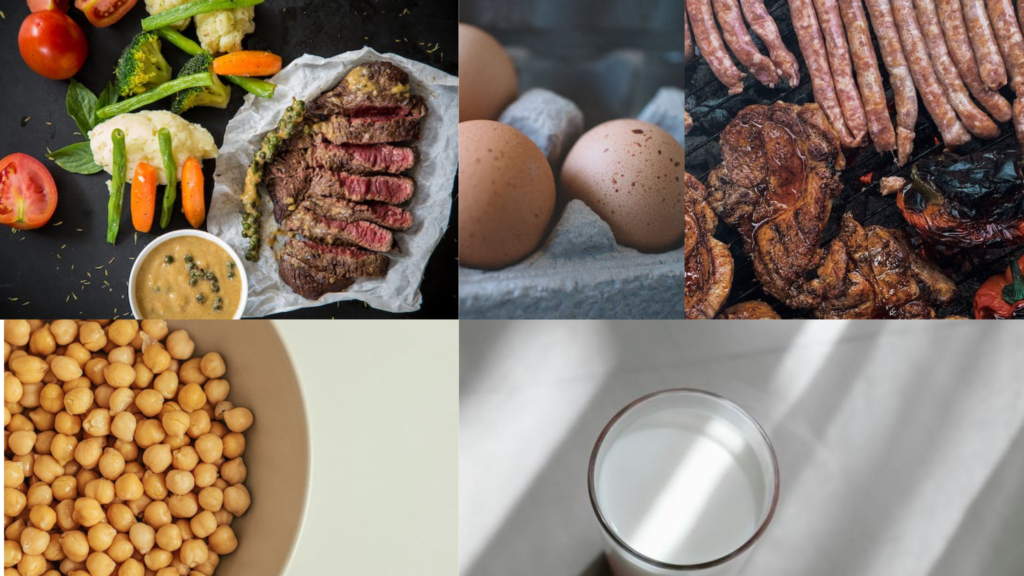
protein intake before and post-exercise
Protein is an integral part of muscle building and repair. If your workout results in muscle tears, protein helps your body repair them by providing essential materials needed to heal injuries. Studies have demonstrated that eating 20-40 grams post-exercise can support muscle growth.
Protein synthesizing is the process of building new muscle tissue in your body and requires adequate amino acids to function effectively. Consuming protein before exercising will provide your body with all of these essential amino acids for muscle protein synthesis before and after workouts.
Protein has the greatest temperature-regulating ability of all macronutrients, as it requires more energy to process and then metabolize than fats and carbohydrates. By including more proteins in our diets, thermogenic output will increase, offering greater chances for weight loss.
Adults should consume at least 0.8 grams of protein per kilogram of body weight each day, however, this amount will depend on factors like age, sex weight, and level of activity.
Short version: Consuming protein before and post-exercise can aid in fuelling muscle protein synthesis and helping repair damage to muscles. Consuming an appropriate amount could boost thermogenic output and have increased weight-loss effects, so it is key that individuals meet their personal needs and objectives by taking in enough protein.
Unveiling the Truth Regarding Protein and Weight Gain
A common myth regarding the relationship between protein consumption and weight gain is that excessive protein consumption causes weight growth. While protein can provide some weight-loss advantages, too much of it could contribute to muscle growth resulting in weight gain as it helps your body produce and store muscles that aid muscle maintenance and growth. Not exactly accurate!
Consuming too much protein may contribute to weight gain, particularly when your protein sources contain too many fats – as your caloric intake could exceed what is necessary. Adults should consume at least 0.8 grams of protein per kg of body mass every day; the exact amount will depend upon factors like gender, age, sexuality, and level of physical activity.
Protein is an essential dietary element, playing an integral role in human body functions. Therefore, consuming an appropriate amount is key to staying healthy and losing weight successfully. A diet high in protein content or relying solely on food high in protein won’t work to achieve weight loss effectively. Its Variety of Protein Sources
Here are a few protein sources you could add to your diet:
Almonds: Almonds are an incredibly healthy tree nut packed with fiber, manganese, vitamin E, and magnesium as well as plant-based proteins.
Breast chicken is an excellent way to increase protein consumption. In addition to offering plenty of essential B vitamins and minerals such as selenium and zinc, chicken provides many other health benefits too. Cottage cheese provides low calorie/fat intake but still packs in an abundance of protein-rich goodness.
For more information on protein sources, refer to these resources:
* High Protein Foods: 16 Foods to Add Protein-Rich Meals
* Protein Sources, Deficiencies, and Requirements
* Harvard T.H Chan School of Public Health Protein The Nutrition Source and its Requirements
* Nutrition.gov Protein Rich Recipes for Weight Management
Here are a few recipes rich in protein that may help manage your weight:
Chicken Tinga Tostadas: For these tostadas, we combine cotija cheese for its salty brine with cilantro to create an irresistibly fragrant treat. For optimal results, these tortillas are baked to ensure they have an irresistibly crisp base; we also reduce oil usage compared to deep-frying!
Stuffed Pepper Soup: This delicious soup takes its inspiration from stuffed bell peppers but can be completed much more quickly and with minimal ingredients! Get creative when choosing toppings – ours include onions, Cheddar cheese, and tortilla chips but other options could include salsa, sour cream, and corn.
Peppery Barbecue Glazed Shrimp Vegetables and Orzo: This delicious BBQ shrimp dish features a spicy spice blend and is served alongside zucchini, peppers, and whole grain orzo for an easy and tasty dinner that takes only 30 minutes to prepare! All components can be prepared together in the same pan for easy cleanup!
Chicken Parmesan and Quinoa Stuffed Peppers: Enjoy this low-carb, gluten-free variation of Chicken Parm with cheese-filled peppers filled with quinoa and chicken for an enjoyable and easy dinner option! Combine with salad to complete this nutritious dish!
Pizza-Stuffed Spaghetti Squash: Instead of messing around with dough, put all your favorite pizza ingredients directly in spaghetti squash boats for an enjoyable and nutritious meal that is sure to please all. Our preferred combo includes bell peppers, mushrooms, and pepperoni as well as mozzarella and pepperoni but you can make it truly unique by mixing in other favorites from your pizza menu – maybe cooked chopped broccoli is your thing, or olives or chopped artichoke heart pieces might make yours vegetarian friendly; then complete dinner with an easy salad salad dish before heading straight home after!
Spinach and artichoke dip pasta: If you’ve always longed to create an entire meal with warm artichoke and spinach dip, this delectable pasta dish may just be what’s needed! Not only is the taste amazing; this nutritious dinner takes only 20 minutes to create!
For recipes rich in protein, consider these resources: For dinner recipes that support weight loss, there are 25+ protein-rich recipes and 15plus high-protein food ideas for lunch that could help: * 25+ High Protein Recipes to Help Weight Loss
* High-Protein Recipes | BBC Good Food
* 31 High-Protein Meals You Can Prepare in 20 Minutes.
Protein Timing and Frequency
Protein timing refers to eating high-protein food at certain times during the day to maximize recovery and growth in muscles. While some experts suggest an “anabolic window” of 15-60 minutes post-exercise when protein consumption can be most effective, depending on factors like level of activity, hunger, and personal meal preferences; timing for protein may differ based on various circumstances and circumstances; an approximate guideline would be 30-40 grams at each meal and 10-15 grams every 3-4 hours as snacks.
For more information about when and how often to consume protein, you can refer to these sources: * What Is The Importance Of Eating Protein At This Timing? * When Should You Start Eating Protein Now?
Conclusion
For those attempting to achieve the ideal physique, protein should not be seen as an enemy but as an ally. When you understand its significance in setting realistic goals and taking advantage of various sources, consuming all your preferred sources is possible and remaining lean. So get out there, dispel misconceptions, enjoy delicious meals, and take pride in seeing how others have reached their fitness goals thanks to an active, protein-rich lifestyle!
FAQ
Will eating too much protein cause weight gain?
In reality, healthy protein consumption will not lead to weight gain and may help with controlling it instead.
How can I include more protein in my meals?
To get more protein into your diet, incorporate protein-rich food items such as lean meats, legumes, and dairy products into daily meals for optimal health – check out our delicious recipes for inspiration
Is There an Ideal Time to Eat Protein For Maximum Benefits?
While increasing your daily protein consumption can bring many health advantages, increasing it before and after exercise may provide significant added advantages.

